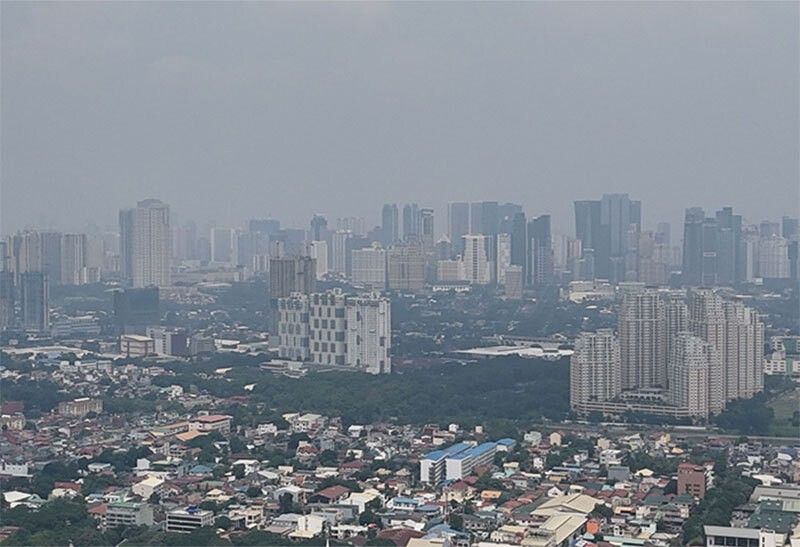
Photos show the air quality in Quezon City and Pasig on August 19, 2024, as vog from Taal Volcano drifted across several areas.
STAR / Michael Varcas
MANILA, Philippines — The Philippines needs to balance economic growth and climate resilience to address development and poverty reduction amid the country’s continued vulnerability to the impacts of climate change.
Speaking at the Coalition of Finance Ministers for Climate Action (CFMCA) Regional Meeting yesterday, Finance Secretary Ralph Recto said integrated solutions are needed to bring climate action and poverty eradication together.
Established in 2019, the CFMCA is a global alliance of finance ministers in 92 countries to foster knowledge exchange and support climate action initiatives.
Recto said the Philippines is doubling its efforts to master the complexities of economic development and climate action.
The finance chief noted that the government is prioritizing fiscal stability to provide long-term investments for a more meaningful climate action.
“We cannot achieve overall economic prosperity for Filipinos without boosting climate resilience,” Recto said.
“Because climate change is deeply unfair. It strikes the hardest at the poorest, makes poverty worse. It is the ultimate injustice,” he said.
As such, the Philippines is armed with the National Adaptation Plan and the Nationally Determined Contribution Implementation Plan as playbooks that outline strategies to fully achieve both climate and economic objectives.
The country is also banking on the People’s Survival Fund as one of the concrete and innovative climate solutions, which channels resources directly to locally tailored and community-led climate adaptation projects.
Further, Recto emphasized that the Department of Finance is utilizing fiscal policy as a tool to promote a regime that rewards green investments in the country.
For one, the Corporate Recovery and Tax Incentives for Enterprises Maximize Opportunities for Reinvigorating the Economy bill aims to improve the country’s tax incentives policy and tailor-fit investors’ interests to attract more investments in clean and renewable energy, green infrastructure, sustainable agriculture and waste-to-energy technologies, among others.
The passage of the excise tax on single use plastics is also expected to address pollution and adopt more sustainable practices.
Likewise, the expanded electric vehicle incentive program is also seen enhancing the ease of doing business in the Philippines and advancing the country’s climate ambitions.


 Ex ni Kyline Alcantara na si Kobe, BINISTO ang lahat sa publiko—Lahat ng Baho Isiniwalat
Ex ni Kyline Alcantara na si Kobe, BINISTO ang lahat sa publiko—Lahat ng Baho Isiniwalat


